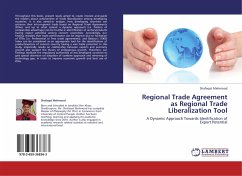
Economic Sanctions as a Tool of Influence
Lessons from the War in Yugoslavia
Versandkostenfrei!
Versandfertig in 6-10 Tagen
32,99 €
inkl. MwSt.

PAYBACK Punkte
16 °P sammeln!
The purpose of this book is to examine and explore how economic sanctions can be used as a successful instrument to influence countries. The analysis of the application of sanctions against Serbia-Montenegro (1992-1995) will be particularly effective in addressing the two primary questions of this book: first, did economic sanctions influence the behaviour of the Serbian government by stopping the war in Bosnia, and secondly if they did, in which ways were they able to modify Serbian conduct? This book will advance two main arguments. First, economic sanctions influenced Serbian authorities, n...
The purpose of this book is to examine and explore how economic sanctions can be used as a successful instrument to influence countries. The analysis of the application of sanctions against Serbia-Montenegro (1992-1995) will be particularly effective in addressing the two primary questions of this book: first, did economic sanctions influence the behaviour of the Serbian government by stopping the war in Bosnia, and secondly if they did, in which ways were they able to modify Serbian conduct? This book will advance two main arguments. First, economic sanctions influenced Serbian authorities, not for their economic impact or political pressure on the population, but because the international community was able to send a strong message of disagreement to Belgrade for its behaviour. Second, this was possible because, using sanctions, the international coalition was able to send clear signals about its future intentions. The coalition convinced Serbia that it would continue to imposesanctions until they were successful.












